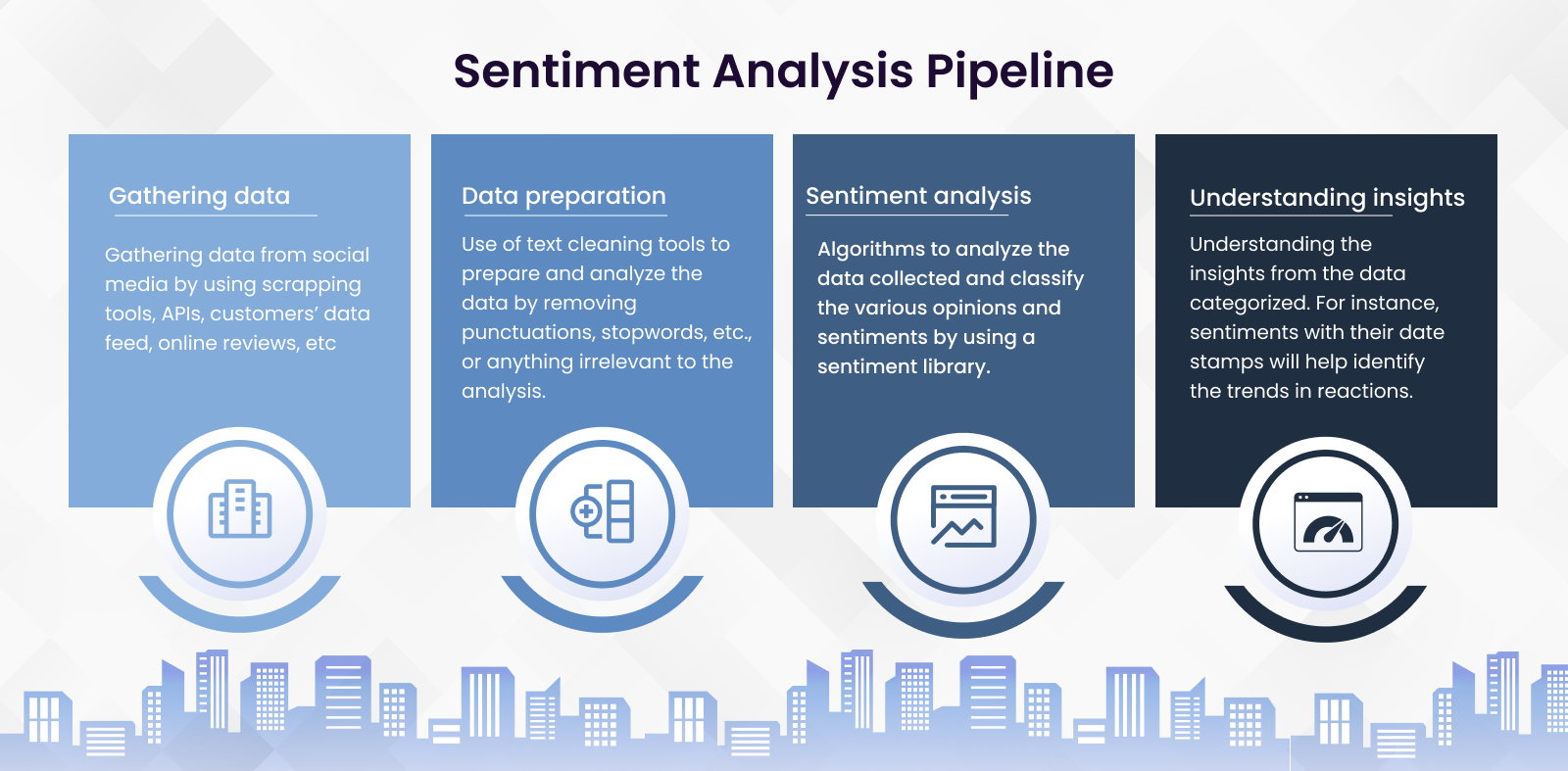Effective and data-driven customer sentiment analysis is crucial to a brand’s success. It can help identify areas where the company needs to improve and where it can improve by mining the opinions and feedback of its customers. Sentiment analysis is a technique that helps retail and eCommerce businesses to capitalize on the intelligence and insights found in hard-to-parse data gathered from emails, chats, social media posts, text, and more.
Sentiment analysis, which is also referred to as opinion mining, is an automated process that analyzes a text to identify its underlying sentiments. It can then classify the statements as positive, negative, or neutral with machine learning and text analytics algorithms. Businesses, both online and retail outlets, can track the opinions and reactions to improve their customer services and experiences by analyzing social media posts, tweets, and online product reviews. Besides being used for analysis, sentiment analysis can also help predict the future. For instance, positive sentiment could have an upward effect on stock prices.
Companies are increasingly interested in identifying and addressing the pain points of their customers. This is evidenced by the rise of sentiment analysis tools during the coronavirus outbreak. It became increasingly important for brands to understand the customer experiences. In 2020, the importance of quality text analytics and natural language processing (NLP) analysis was highlighted when the customers failed to access the stores and were left with automated customer service. As the rise of online shopping led to the introduction of chatbots, many consumers became dissatisfied with the service they received.
The Need for Sentiment Analysis in Retail & eCommerce
Traditionally, asking customers about their experience has been the method of deriving customer sentiments. However, this is not always possible for all businesses. In most cases, it is easier to take the individual opinions of customers if the business is a small boutique or a restaurant. For an e-commerce merchant or a mid-level merchant, it is not possible to ask their customers about their experience every day. At the same time, it becomes easier for the customers to leave their opinions and comments on a different channel that would contribute to the brand’s image.
With the advent of social media, a customer’s opinion can generate responses from other users, which can then influence a negative or positive campaign against the business. Due to the rapid emergence of digital platforms, it has become very important for retailers to respond quickly to their customers’ opinions which enables them to rely on sentiment analysis and machine learning to mine actionable insights from large amounts of data from various sources in a short period of time. With such effective algorithms, retailers can take immediate action to resolve issues and improve their customer service.
How Does Sentiment Analysis Work?
A sentiment analysis tool measures a text’s overall score by placing it on a spectrum of attitudes that range from -1(strongly negative) to +1(strongly positive). It can then distinguish between positive and negative comments. To understand this further, let’s consider an example of the online reviews of a product on an eCommerce website. The words like “economical”, ”good quality”, “reasonable”, etc., in the customer reviews, will be identified by the sentiment analysis tool as positive whereas words like “bad”, “delay”, “poor”, “noisy”, etc., will be classified as negative.

Finding Value with Sentiment Analysis
Sentiment Analytics in retail and eCommerce can help answer the question of “why” the customers like or dislike a brand. It can reveal valuable insights into the customers’ purchases and how they behave.
Customer experience
Sentiment analysis can help identify the key factors that influence a customer’s decision to return to a particular retail outlet or an eCommerce website, such as their expectations of the company, the services they provide, etc. It can detect the tone and temperament behind their words on social media postings and categorize them into positive, neutral, or negative – thus enhancing the customer experiences.
Competitive edge
Through sentiment analysis, businesses can monitor the behavior of their customers to see how they’re doing and how they stack up against the competition. This will help the companies develop strategies to improve the customer experience and gain a competitive edge.
Business intelligence
By analyzing sentiment data, businesses can benefit from the information it provides about their customers, the competitive landscape, new business markets and opportunities, etc. It can also help in identifying customer pain points, values, behavior, etc to create personalized communications. However, this intelligence needs to be merged with human insights along with other important metrics.
Market research tool
Sentiment analysis can help companies identify new markets and trends. It can also help them monitor the events that are of strategic importance to their organization. For instance, an organization can ask questions such as: Is the current market stable? What is the brand value? Which new deals can be grabbed? What are the customers currently talking about the brand? How to tap the untapped market and customers?
Future prediction
Through sentiment analysis, an organization can identify which products and features are trending and which are not. It can also help them predict what’s coming next. With such real-time data, it allows business enterprises to make adjustments to their campaigns and sales strategies based on the latest trends.
Better branding
Sentiment analysis helps organizations improve their customer perceptions of their brand by improving and enhancing their products and services. A well-designed and attractive brand can help an organization stand out from the crowd and attract more customers. It can also help them respond to their customers’ needs and improve their overall performance.
How Devfi can Help you Listen to your Retail and Online Customers with Sentiment Analysis
Devfi is a digital transformation and technology company that leverages new-age technologies like data science, AI, machine learning, cloud, etc to offer personalized consulting and development solutions that meet the needs of their clients. It helps retail and e-commerce enterprises to derive valuable insights from large volumes of unstructured data available online by personalizing automated sentiment analysis that maximizes accuracy and success rate. Their state-of-the-art machine learning and deep learning algorithms extract many unique topics that are highly relevant and specific to each business they work with. For more details, visit their website.






